Guinea junta defies pressure on return to civilian rule, release of ex-president
Guinea’s junta that seized power in a coup early this month has defied international pressure for the release of detained former president Alpha Conde and a return to civilian rule.
Colonel Mamady Doumbouya, who seized power in Guinea on September 5, told a delegation of West African leaders he was not concerned about new sanctions imposed by the regional bloc to pressure a swift transition to constitutional rule, the junta's spokesman said on Saturday.
Two representatives from the Economic Community of West African States (ECOWAS) met with Doumbouya in Conakry on Friday after the 15-member body decided to freeze the financial assets of the junta and their relatives and bar them from traveling.
Ivory Coast's President Alassane Ouattara and Ghana's President Nana Akufo-Addo, who paid a one-day visit to the Guinean capital, asked the coup leader to release Conde and hold new elections in six months.
Ouattara had reportedly been hoping to leave Guinea with Conde.
Doumbouya, however, rejected their request, telling the ECOWAS representatives that the release of Conde was against the people's will.
“The former president is and remains in Guinea. We will not yield to any pressure,” the military leader’s spokesman, Colonel Amara Camara, said in a statement read on state TV following the conclusion of the talks with the ECOWAS representatives.
Doumbouya told the visiting delegation that "it was important for ECOWAS to listen to the legitimate aspirations of the people of Guinea," the spokesman said, adding, "As soldiers, their work is in Guinea and there is nothing to freeze in their accounts."
The coup has been widely condemned by the international community, placing pressure on the junta to offer a plan beyond the toppling of the old order, and to reassure investors that Guinea's significant ore exports would not stop.
"A consultation will be carried out to define the major framework of the transition, then a government of national unity will be put in place to lead the transition," Doumbouya, a former French legionnaire officer, told a meeting of Conde's ministers and senior government officials after the coup.
"At the end of this transitional phase, we'll set the tone for a new era for governance and economic development," he pointed out.
He did not say what the transition would entail or give a date for a return to democratic elections.
His seizure of power was buoyed by widespread disaffection with Conde, 83, who had promised stable democracy but violently silenced opponents, failed to reduce poverty and last year decided to run for a third term in power - a move many said was illegal.
The coup was welcomed by many inside the country but spooked the mining sector. Guinea holds the world's largest bauxite reserves, an ore used to produce aluminum. Prices of the metal shot to a 10-year high on Monday, though there was no sign of supply disruptions.
Hamas slams Israeli settlers’ ‘criminal aggression’ in West Bank
VIDEO | Press TV's news headlines
VIDEO | Iran launches 'Holy Qur'an Does Not Burn' campaign to restore mosques damaged in unrest
VIDEO | Ramadan amid the rubble: Gaza’s historic Al-Zawiya market defies odds
UN sounds alarm over US-generated energy crisis in Cuba
Yemeni leader: US-Israeli focus on Iran stems From Tehran’s role in blocking their schemes
Iran’s progress ‘miraculous’ despite sanctions: Nuclear chief
Netanyahu fears fruition of Iran US talks


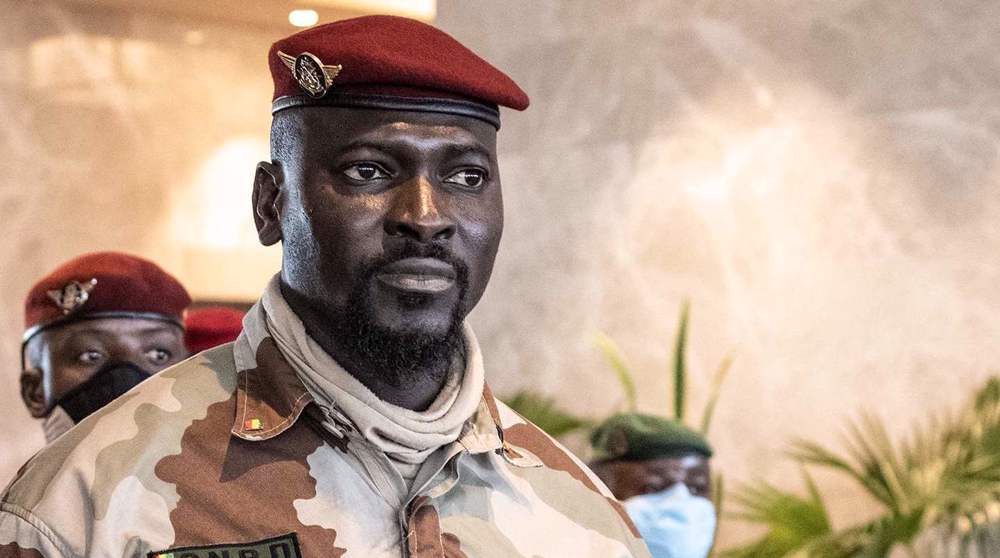
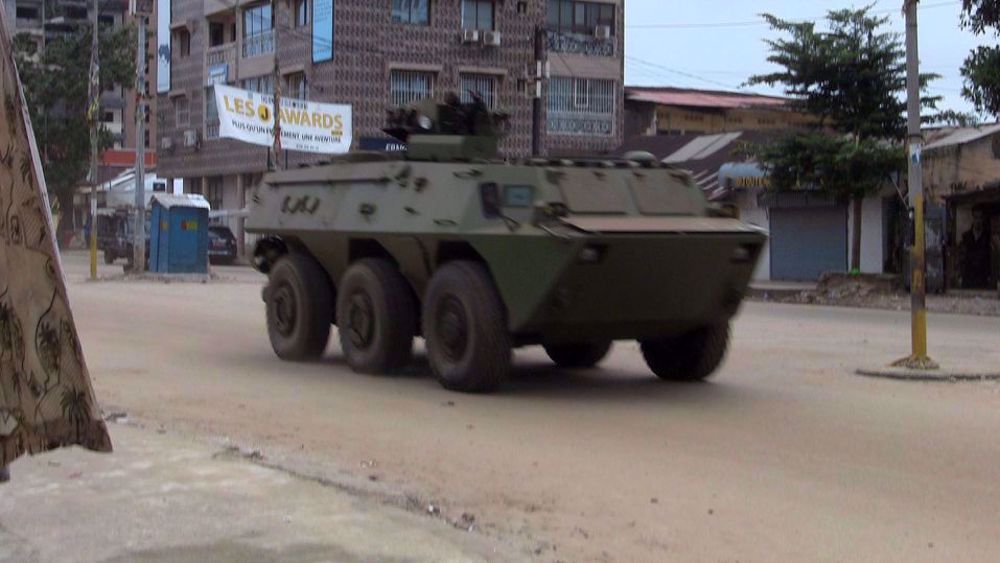


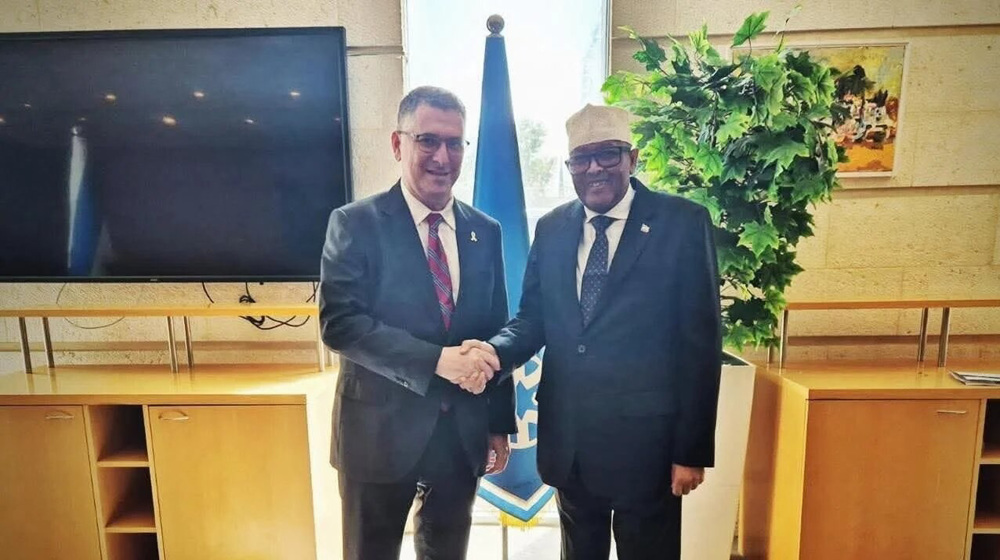



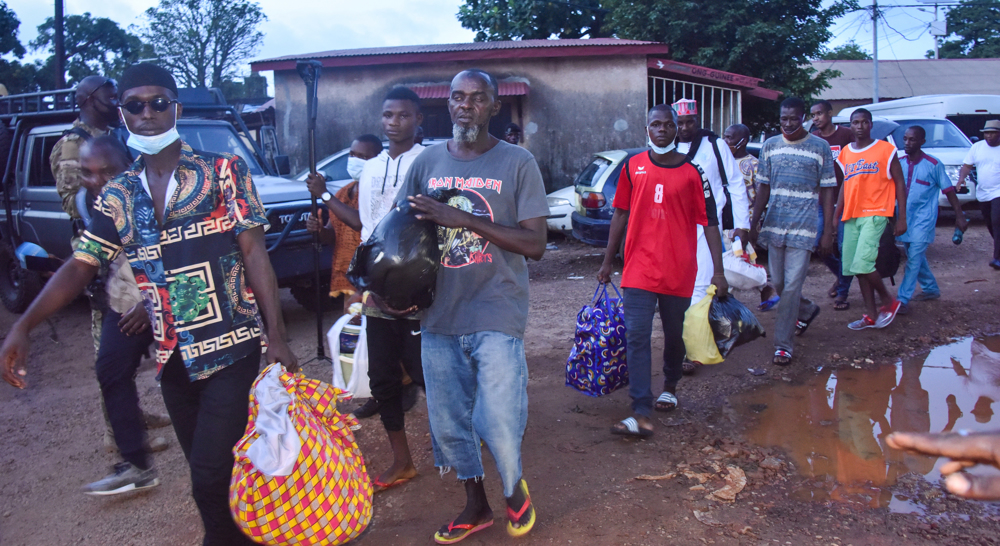
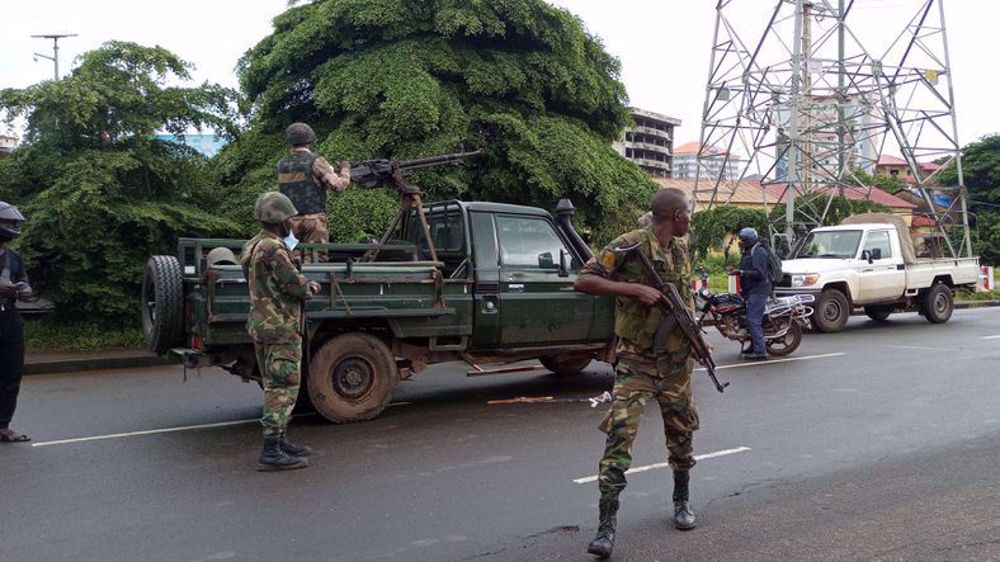

 This makes it easy to access the Press TV website
This makes it easy to access the Press TV website